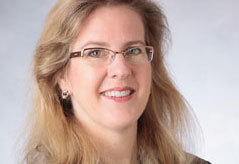This post was written by Duke MBA student Grace Webster in March 2014.
As a part of the CASE i3 Speaker Series, Laurie Spengler, CEO of Enclude (formerly Shorebank International), visited Fuqua in December 2013 and shared some of her observations on global lessons for leveraging capacity with capital for impact.
Enclude is a professional services advisory firm with a focus on inclusivity among local economies. Noting that capital and capacity are synergistically linked and financial support alone is not enough to grow entrepreneurs, Enclude seeks to provide financial credit solutions that meet the needs of diverse customers as well as connect small holder farmers with markets for their products, and rural communities to healthcare through mobile platforms. Working around the world to bring together traditional financial institutions and entrepreneurs in emerging markets, Enclude applies a fresh perspective to disrupt the status quo with innovative, high-value solutions that deliver measurable results.
Laurie noted the recent release of the Impact Investing 2.0 case studies, and applauded these efforts for highlighting the full story of impact investors. She thought our shared interest in and passion for impact investing is cause for celebration. However, we should not feel too comfortable with these internal successes of impact investing; there remain plenty of people who do not understand impact, impact investing, or businesses generating social good as well as people who think that this is all just a passing fad. As such, there is a need to build alliances and reach out to explain and demonstrate blended social and financial value to those outside of our circle of friends. While impact investing is focused on inclusivity, how do we push beyond our ‘small’ circle of practitioners and mainstream impact investing? Laurie noted 3 ‘gaps’ to addressing the expansion of impact investing:
Communications Gap. There is a difference between articulating an interest in impact investing and actually writing a check for investment. Even further, for those coming into deals, there is a gap between the purpose of their impact and the actual terms of the transaction that they negotiate. The disconnect between individual and institutional investors asking for impact investments and financial advisors who focus on fiduciary duty first and last is a particular focus area. There is an opportunity to educate and motivate financial advisors to put “mission and impact first and last” by demonstrating tangible evidence that highlights successful business transactions.
Analytical Gap. We are limited in the analytical tools that demonstrate financial and social return at the same level. It is challenging to model the combination of financial, social, environmental, and developmental, returns that an investment can achieve in order to articulate the full value of an investment opportunity. For many social entrepreneurs and impact investors, there is no existing market or business model to use as a benchmark for due diligence, and this represents a challenge for engaging new investors. It is not just a matter of developing language for structuring deals in new geographies, markets, and industries, there is a lack of analytical tools to evaluate and articulate the risks and blended returns of emerging investments.
Ecosystem Gap. Very few impact-focused advisory intermediary consultants exist to provide professional support in deal-making infrastructure. Entrepreneurs are the party generating impact and they often need an advisor to help them prepare to take on an outside investor. This entails ensuring financial transparency and accuracy for due diligence, evaluating and accessing capital, and structuring a deal that prices capital appropriately. In traditional finance, an abundance of advisors assist small businesses with deal structuring, negotiating, and executing, but there is a dearth of support for impact-focused entrepreneurs and investors. As impact investing becomes more professionalized, it is crucial that this level of the ecosystem strengthens and expands.
Inherent throughout Laurie’s presentation and woven through her talking points and anecdotes was the importance of communication. Communication is needed for multi-national banks to know their audience and be aware of language and messaging. Communication is needed for entrepreneurs to articulate their social and financial impact in a way that traditional and non-traditional investors can understand. And communication is needed to bring these two groups together to establish rapport. Each side must develop a different skill set and align motivations to build the business case for investment and gain buy-in from all agents. There is a real danger in rushing into business relationships too quickly before sustainable, long-term investment objectives are identified. As impact investing reaches an increasingly global network for capital and entrepreneurs it is important to adopt a holistic approach for complex solutions, drawing on a variety of services and tools across industries and actors.
Interested to hear more? View Laurie’s full talk below:

